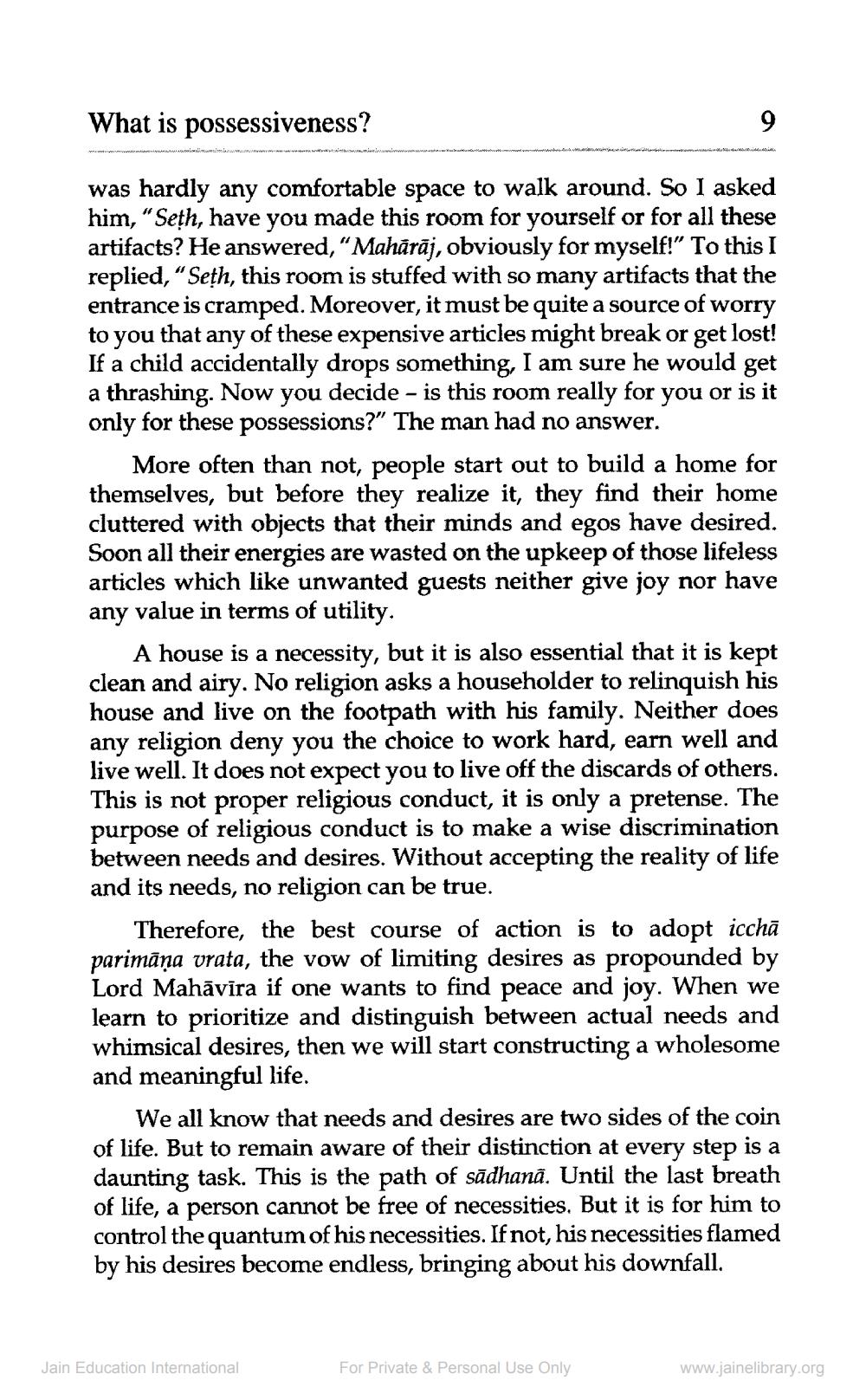________________
What is possessiveness?
www
.mini
was hardly any comfortable space to walk around. So I asked him, "Seth, have you made this room for yourself or for all these artifacts? He answered, “Mahārāj, obviously for myself!" To this I replied, “Seth, this room is stuffed with so many artifacts that the entrance is cramped. Moreover, it must be quite a source of worry to you that any of these expensive articles might break or get lost! If a child accidentally drops something, I am sure he would get a thrashing. Now you decide - is this room really for you or is it only for these possessions?" The man had no answer.
More often than not, people start out to build a home for themselves, but before they realize it, they find their home cluttered with objects that their minds and egos have desired. Soon all their energies are wasted on the upkeep of those lifeless articles which like unwanted guests neither give joy nor have any value in terms of utility.
A house is a necessity, but it is also essential that it is kept clean and airy. No religion asks a householder to relinquish his house and live on the footpath with his family. Neither does any religion deny you the choice to work hard, earn well and live well. It does not expect you to live off the discards of others. This is not proper religious conduct, it is only a pretense. The purpose of religious conduct is to make a wise discrimination between needs and desires. Without accepting the reality of life and its needs, no religion can be true.
Therefore, the best course of action is to adopt icchā parimāņa vrata, the vow of limiting desires as propounded by Lord Mahāvīra if one wants to find peace and joy. When we learn to prioritize and distinguish between actual needs and whimsical desires, then we will start constructing a wholesome and meaningful life.
We all know that needs and desires are two sides of the coin of life. But to remain aware of their distinction at every step is a daunting task. This is the path of sādhanā. Until the last breath of life, a person cannot be free of necessities. But it is for him to control the quantum of his necessities. If not, his necessities flamed by his desires become endless, bringing about his downfall.
Jain Education International
For Private & Personal Use Only
www.jainelibrary.org




